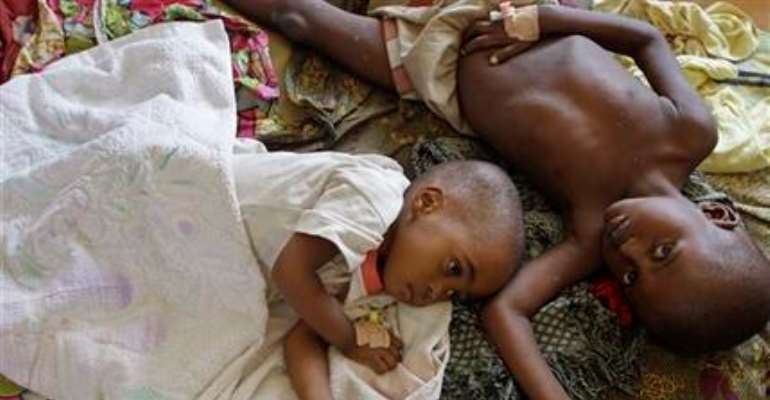Malaria remains the biggest killer in sub-Saharan Africa, says Bayer

WHO says most malaria-endemic countries are still far from achieving universal coverage with life-saving malaria interventions1
World Malaria Day, 25 April, theme “Invest in the future, defeat Malaria”, aimed at reiterating the profile of the disease
Johannesburg, 23 April 2015 – , Johannesburg – Malaria mortality rates have decreased in recent years, but the battle is far from over with Malaria still the biggest killer in sub-Saharan Africa. Significant efforts have been made by governments, non-profit organisations (NGOs) and the private sector alike, in line with the targets laid out in Millennium Development Goals, to continue reducing the impact of malaria in Africa by scaling up on intervention methods.
Sylvester Jobic, Head of EnvironmentalScience (Public Health) for Bayer in Sub-Saharan Africa says, “Despite this decrease, Malaria is still the number one cause of hospitalisations and deaths in Africa. In fact, malaria causes more deaths than HIV and tuberculosis, considering that there is a malaria related death every 30 seconds in Africa, predominantly among women and children.”
Africa, and in particular the sub-Saharan Africa regions, has seen a significant increase in intervention initiatives in recent years. In fact, according to the 2014 World Malaria Reports1 the number of infections across Africa decreased by 26%, from 173 million in 2000 to 128 million in 2013. Despite increased initiatives, however, the challenge is that there continues to be major gaps in intervention coverage. The report goes on to site that 278 million of the 840 million people at risk of malaria in sub-Saharan Africa live in households that do not have a single insecticide treated mosquito net and, between 56 and 69 million children with malaria did not receive anti-malarial drugs.
“The prevalence of malaria in the sub-Saharan region needs to be addressed, not just for the impact that it has on people and their lives, but also the compounding impact that it has on economies. For instance, according to the World Bank2, combating Malaria reduces GDP growth by approximately 1.3% per year in some African countries and, this could even be more if we factor in the loss to productivity as a result of illness,” adds Jobic. “Under such circumstances, the loss to society and the continued impediment on growth aspirations and potential of the economies within this region cannot go unaddressed.”
Prevention has proven to be the best form of intervention in the case of malaria, with the two most successful methods found in insecticide-treated mosquito nets and insecticides that are used to spray in-and-around houses (indoor residual spraying). While a number of products are available, the quality and durability of nets aren’t all the same and overtime mosquitoes have built up resistance to certain chemical classes used in developing insecticides.
“Because our products are manufactured in South Africa for Africa, we have a solid understanding of the African environment that enables us to continue innovating products and solutions,” explains Jobic. “It is for this reason that Bayer undertook an intensive business development initiative. We knew we would be able to use our extensive resources in research and development to engineer quality nets that would last longer and develop insecticides that would break this resistance, and play our part in the fight against malaria.”
“Unfortunately, there is no ‘one-size-fits-all’ solution to wipe malaria out completely. At Bayer, we are committed to bringing malaria down to more manageable levels throughout Africa, and believe in using science to improve the lives of people. In addition, we are actively working to foster our ongoing partnerships with the Malaria Consortium, USAID, WHO and various Health Ministries – including most recently, the Mpumalanga Government and the NICD Sandringham - to name a few, on pro-active preventative and effective intervention initiatives that will help combat the endemic,” concludes Jobic.
Bayer will be recognised for our active participation in Malaria Control by the Ministry of Health of Senegal on World Malaria Day during the National ceremony to commemorate the World Malaria Day by the President of the Republic Of Senegal. In addition, Bayer will be contributing and participating in activities related to World Malaria Day in Ethiopia in partnership with the Malaria Consortium.
